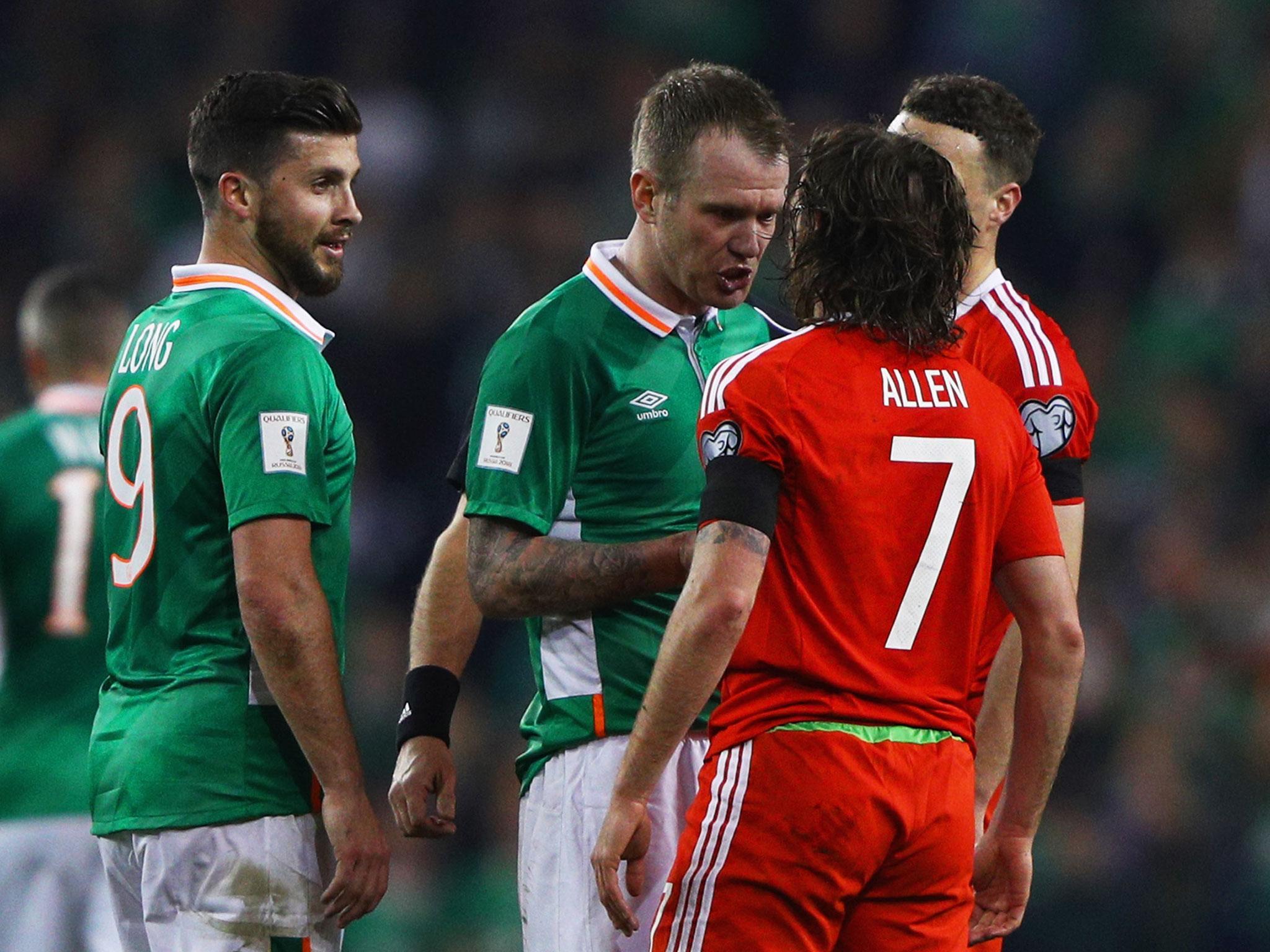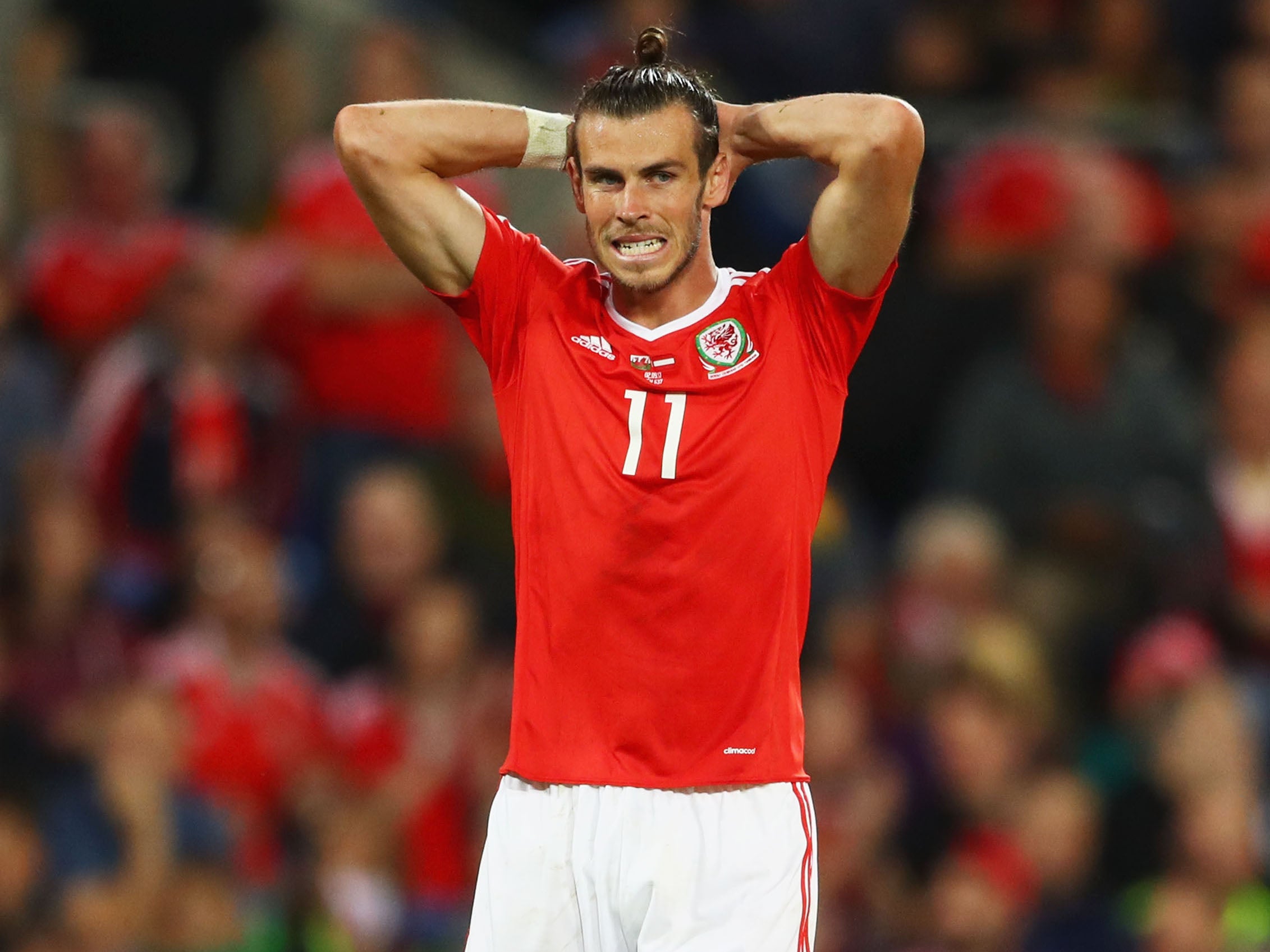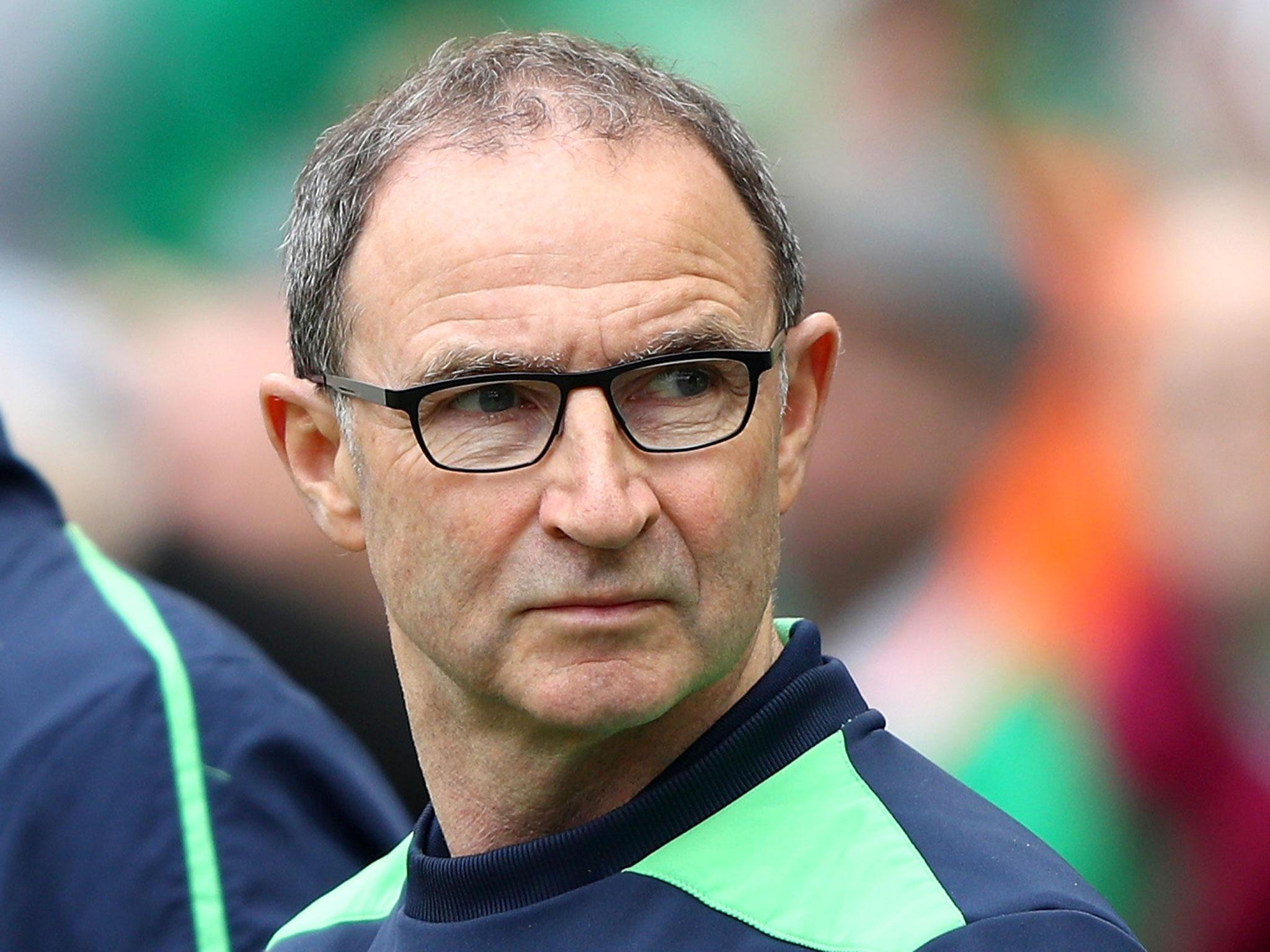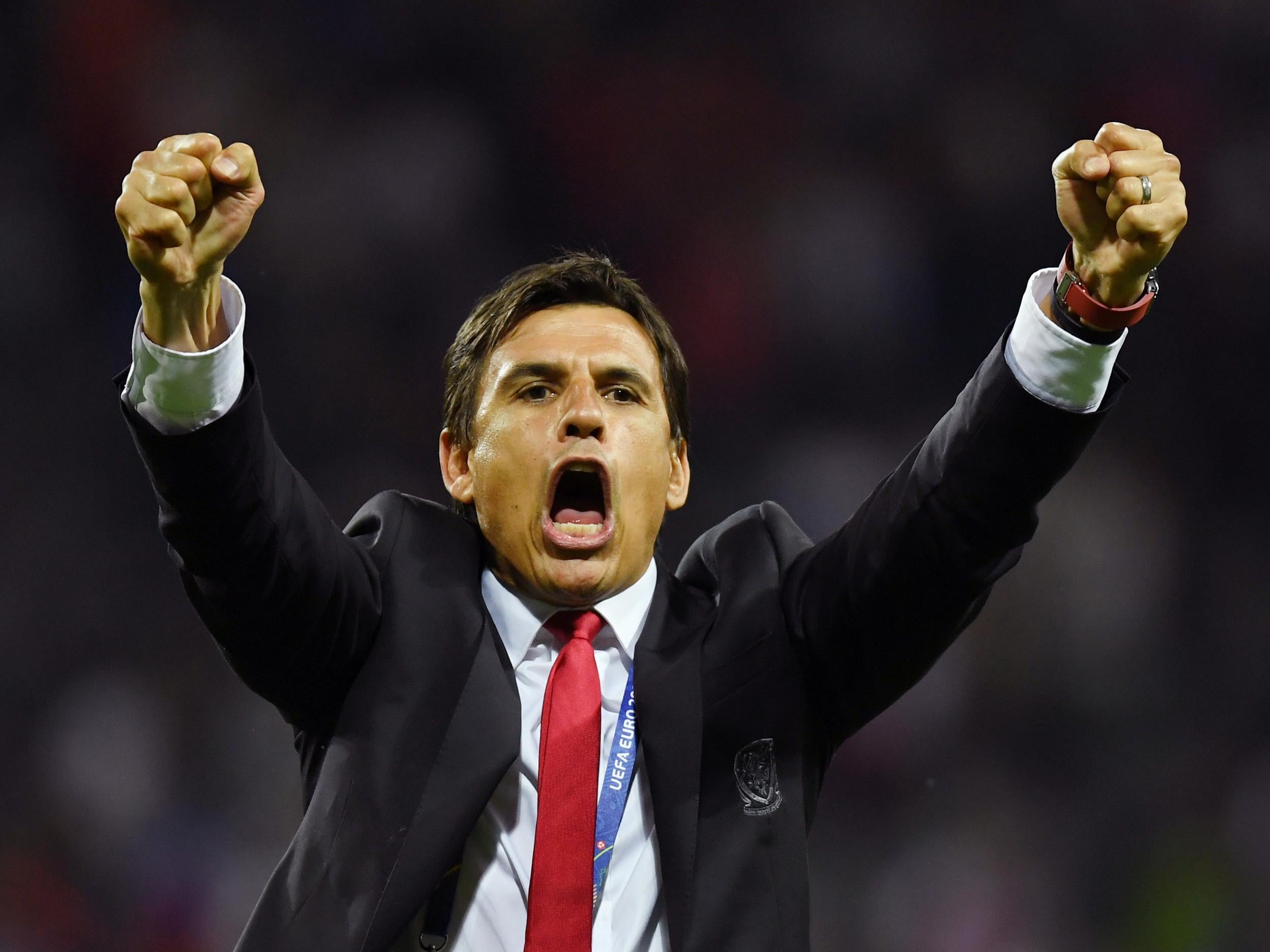Wales, Republic of Ireland and the most delicately poised World Cup qualifying group of all
Without an outstanding favourite and with four teams who would have fancied finishing in one of the top two spots, the danger was always that it would end like this and so it has proved

When the news broke that Gareth Bale would definitely be out of Wales’ final two qualifying group matches, there was a “buzz” around the Irish squad… but not a buzz that lasted all that long, or was all that enthusiastic. That is because, as encouraging as it is for Martin O’Neill that one of the world’s best players is out of Monday’s apparent showdown for a World Cup place in Cardiff, there is still just far too much to consider before then; too many headaches. And all of that goes beyond Ireland’s own multiple injury worries and squad absences with players such as Robbie Brady and James Jon Walters out.
The possibility is that it might not be a showdown at all, and certainly won’t be a winner-takes-all match because both sides would still have to take into account so many permutations and potential outcomes elsewhere before and after the game.
The main problem, beyond the fact that neither of these two sides have really been at their best for much of this campaign, is that Group D has in one way progressed as expected. Without one outstanding favourite almost certain to top the group like a Spain or Germany, and with four teams - including Serbia and Austria - who would have felt they had a very good chance of one of the two top spots, the danger always was that this table would get so congested and competitive that its second-placed team would also finish as the worst of the nine runners-up and thereby miss out on a play-off spot. That is precisely the threat now, as we go into the final week of games, and precisely why so many of those involved are preaching that they can only concentrate on winning the next game. That line for once isn’t just a by-rote response but very good advice, because the permutations are headache-inducing and distracting.
The table currently has Serbia top and likely to stay there on 18 points, Wales next on 14, Ireland in third on 13 and then Austria on nine but consider some of the possibilities from that alone, before even thinking about the many results elsewhere that will affect it all.
Ireland could win both of their games against Moldova and Wales and end up without making the play-offs, or feasibly suffer the humiliation of failing to beat the eastern European side at home on Friday night but still somehow scramble into the eliminators. Wales are meanwhile almost as likely to still win the group ahead of Serbia as they are to win both games and still finish as the worst runner-up.
The excitement for Chris Coleman’s team - as they seek to make a first World Cup since 1958 - is that Serbia have two very tricky fixtures away to Austria and then at home to Georgia, but the problem is that to even try and take advantage of any slip the Welsh have to get maximum points and that is something that has not happened without Bale in some time. Their last victory without the Real Madrid star at home was against Macedonia almost exactly four years ago, and their last victory without him away was against Azerbaijan in 2009.

Even if Bale was available, though, there would be few guarantees about their away match on Friday in Tbilisi. Georgia are part of the reason this group is so complicated, and these sides are in such danger. They have performed much better than their mere five points suggest. Two of those points came from holding Ireland to a draw in Tbilisi last month, and Wales in Cardiff last year. The feeling from both matches was that Georgia were hugely unlucky not to win.
Wales have greatly picked up their form since that slight sense of Euro 2016 hangover, and greatly come on as a team over the past few years to the point they have a strong and well-working outfit beyond Bale… but it’s still so difficult to look beyond him because his quality influences so much and because they just haven’t really handle this kind of situation.
It makes it something of a great unknown, and a great test of Coleman’s capacity for doing something innovative with this squad; something that really gets them out of a hole and into the play-offs. The goalscoring drive of Aaron Ramsey will be crucial.

Bale’s absence would also make any match with Ireland more of a 50-50, since they are broadly similar sides beyond the star, and there is an argument that it could tilt the situation towards O’Neill’s side.
You could say it now feels likelier that Ireland will beat Moldova and Wales will struggle to win in Tblisi, allowing the Irish to go into second place for that last match - but there are two big problems here.
Ireland are missing some of their own best attacking players in the suspended Brady and McClean and injured Walters and Seamus Coleman, and that in a side that has been struggling to create, as questions have been raised about O’Neill’s outmoded tactics. Moldova on Friday could be a long night.
There’s then the fact that, even if they are ahead of Wales, they still have to beat them. They wouldn’t be able to use their superior position to sit back on a draw and counter. With results against the group’s bottom side not counted when it comes to the play-offs, Ireland need to get that victory.

Before anyone can even think about any of that, though, they will need other results to start going their way. That’s when the headaches could really start. That’s why this time for once it’s not a cliche. It is really to their benefit to just concentrate on their own games, and that more simplistic focus could help.
Similar negatives were said about Ireland two years ago only for O’Neill’s team to improbably get the job done and qualify for Euro 2016, after all, while there has just been a general “buzz” around Wales; that they are a properly good international side who can temporarily weather the loss of someone like Bale.
It’s just there’s still so much else to consider, so much else blocking the path to Russia. This is the European group with the greatest amount of complications.
Join our commenting forum
Join thought-provoking conversations, follow other Independent readers and see their replies
Comments
Bookmark popover
Removed from bookmarks